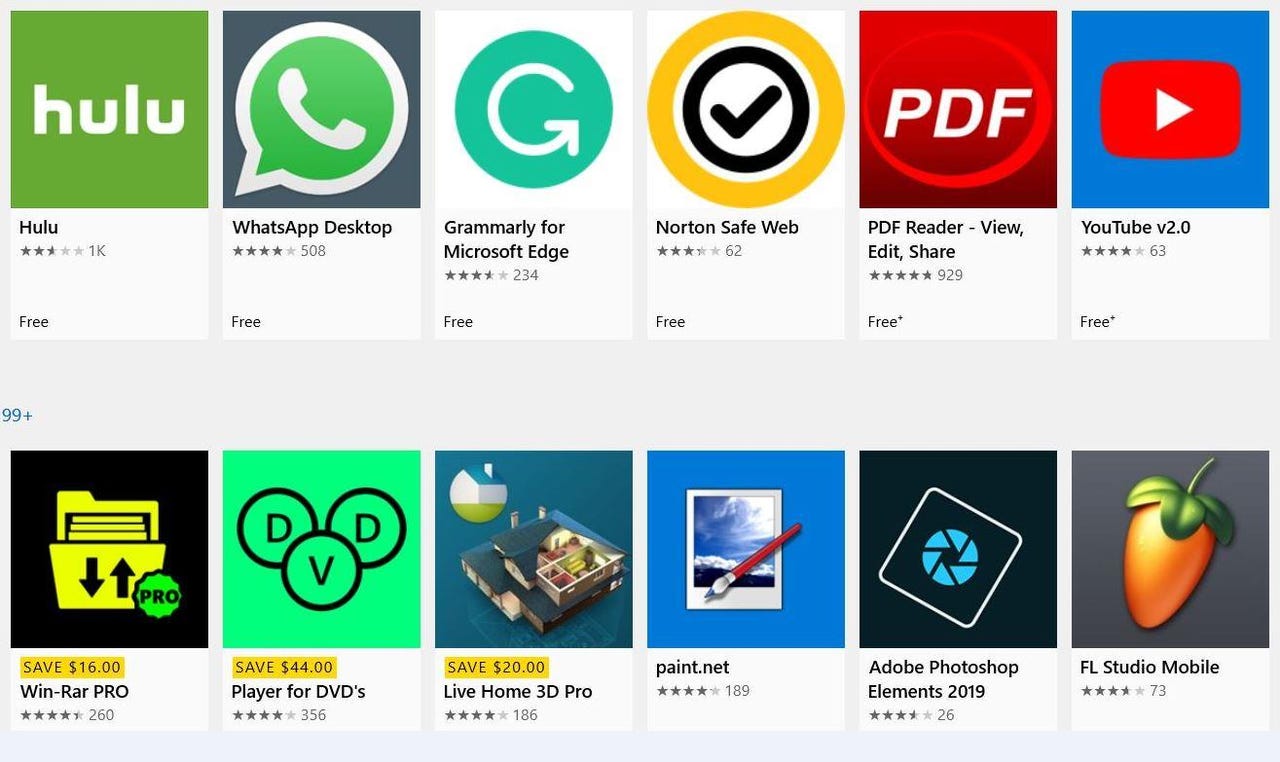Microsoft is now giving consumer app developers up to 95 percent of their Store app sales


Windows 10
At its Build 2018 developers conference, Microsoft announced plans to give developers selling their applications through the Microsoft Store a bigger split of revenues earned. Officials said the new fee structure would roll out before the end of calendar 2018. But it took until March 6 for Microsoft to finally implement the promised revenue arrangement.
Also: What makes Microsoft tick?
Developers of consumer applications can receive up to 95 percent of revenues earned under the new system. That number drops to 85 percent if customers find those applications through a Microsoft Store collection, through Microsoft Store search or through other Microsoft owned properties. The new policy applies to app purchases made on all Windows 10 PCs, Windows Mixed Reality headsets, Windows 10 Mobile devices and Surface Hubs. It doesn't apply to games and purchases made on Xbox consoles.
Up until now, the revenue share on non-game subscriptions that Microsoft was offering developers was 85 percent.
Developers receive 30 percent of revenues for apps and games sold via Xbox consoles; Microsoft Store for Business; and Microsoft Store for Education, as noted on Twitter by Rafael Rivera (@WithinRafael). Devs receive 15 percent on apps and app subscriptions sold via referral by Microsoft and 5 percent on apps and app subscriptions sold via referral by the devs themselves or others.
Must read
- This is not your father's Microsoft (CNET)
- Microsoft's obsession with Windows is ending (CNET)
- 10 apps to add features to Windows 10 (TechRepublic)
- How to set up a Windows 10 computer (TechRepublic)
Microsoft has been continually struggling to get more applications in the Microsoft Store. The company's rather vague announcement at Mobile World Congress that Microsoft is committed to open app stores has led some to wonder how committed Microsoft is to its own Microsoft Store. Until fairly recently, Microsoft's attitude seemed to be its app Store was the one and only way developers should be able to deliver Windows apps, but these days, Microsoft seems resigned to simply trying to get more apps on its platforms by any means necessary.
In Memoriam: All the consumer products Microsoft has killed off
Previous and related coverage:
Windows 7: What is your company's exit strategy?
If your business is still running on Windows 7, it's time to get serious about how you're going to handle the January 14, 2020 end of support. Here are your four options.
Windows 10 version 1903: Act fast to delay this big upgrade
Each time Microsoft rolls out a major upgrade to Windows 10, you have the option to wait a few months before you install it on PCs running Windows 10 Pro or Enterprise. But you have to act quickly.
Windows 10: New study shows Home edition users are baffled by updates
How annoying are Windows 10's automatic updates? In a new study, a group of UK researchers report that users of Home edition experience unexpected restarts and inconsistent installation times, caused by inappropriate defaults and inadequate notice of pending updates.